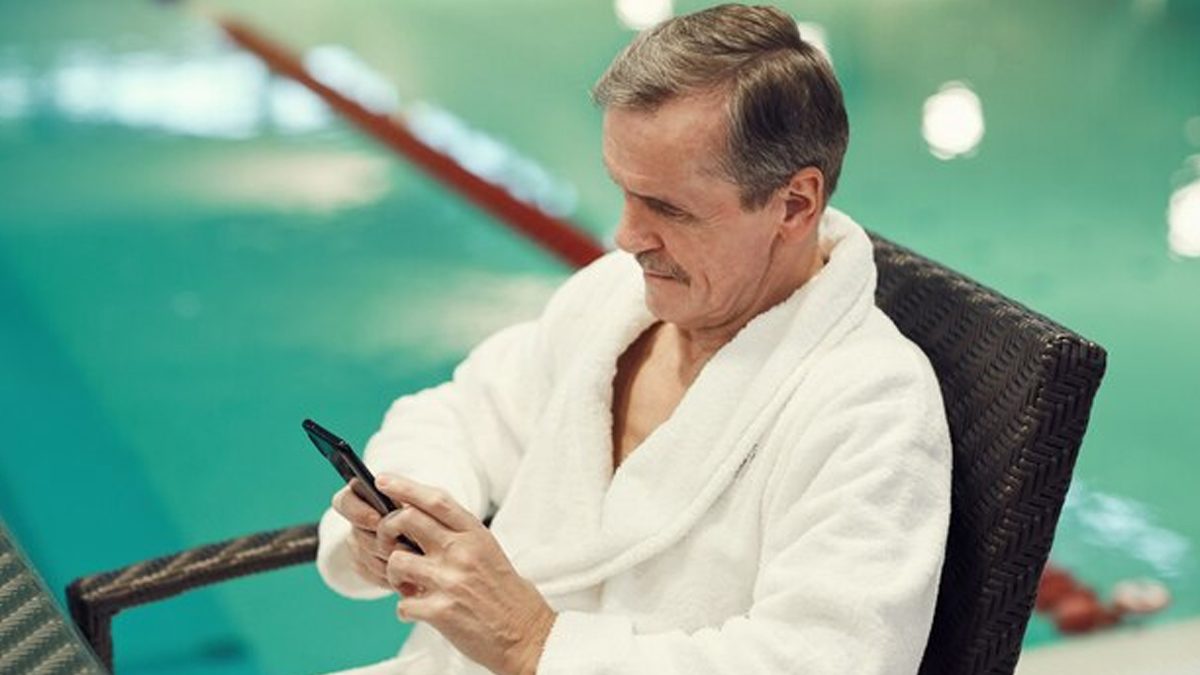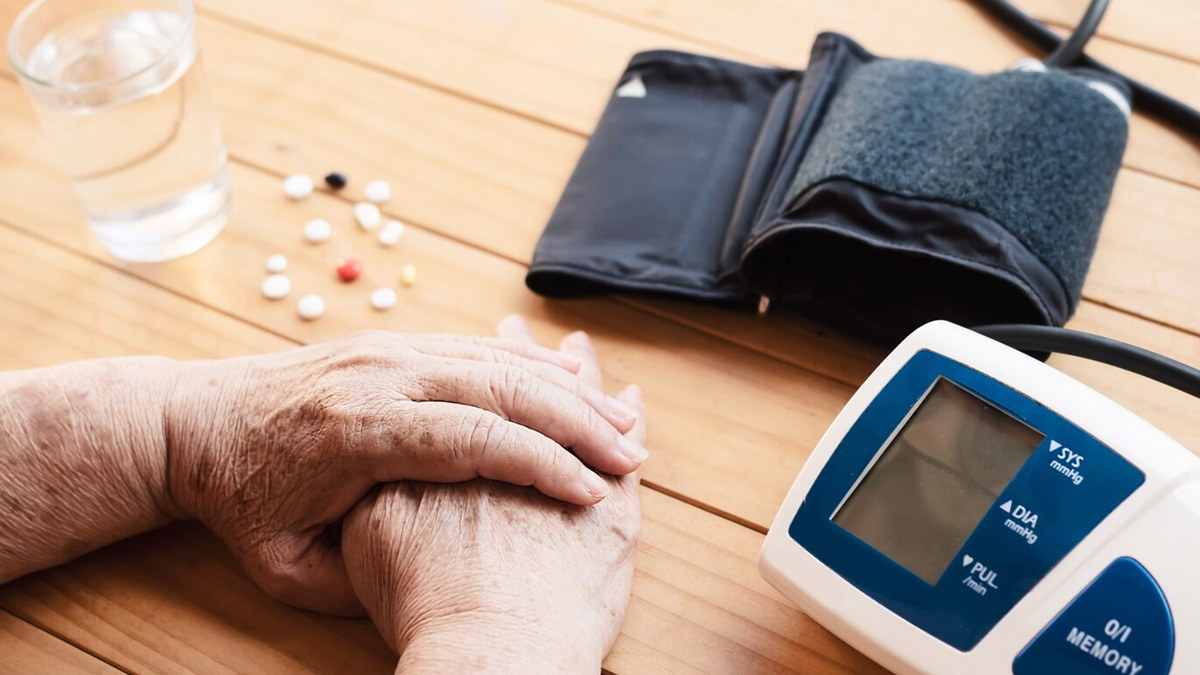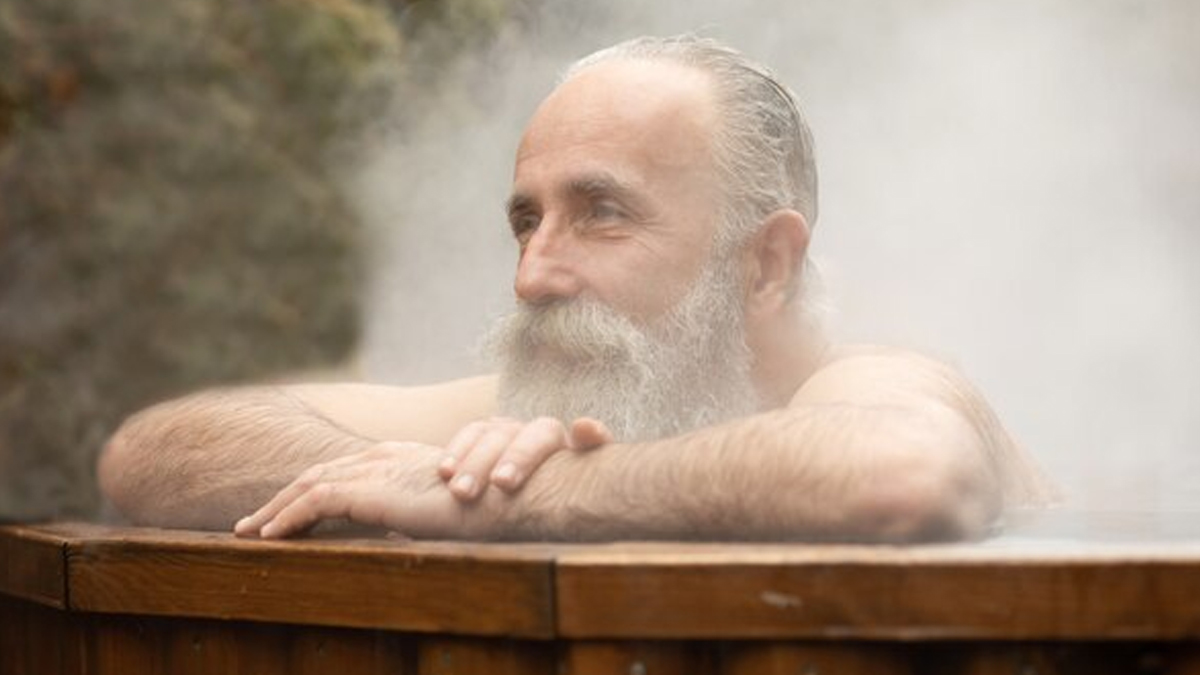
Many people turn to a hot bath after a long, tiring day to relax their body and mind. It is said to ease muscle tension, improve circulation, and provide a sense of calm. But if you are living with high blood pressure, also known as hypertension, you may wonder whether hot baths are safe for you.
Table of Content:-
To address this, we spoke to Dr G Krishna Mohan Reddy, Consultant Physician and Diabetologist, Yashoda Hospitals, Hyderabad, who shared valuable insights on the effects of hot baths on hypertensive patients.
Also Read: Do You Feel Itchy After A Bath? Here's What Might Be The Reason
How Do Hot Baths Affect Blood Pressure?

According to Dr Reddy, hot baths cause blood vessels to dilate, which helps lower blood pressure. The increased blood flow not only reaches the skin but also vital organs, promoting better circulation. This improved flow enhances nitric oxide production, which keeps blood vessels smooth, prevents inflammation, and reduces the risk of plaque build-up.
In fact, a study published in the journal Geriatrics found that the timing of the day when you have hot baths may also influence blood pressure levels. Researchers concluded that night-time hot spring bathing in older adults was significantly associated with reduced systolic blood pressure compared with noontime and afternoon bathing. However, more research is needed to understand the benefits of hot baths on hypertensive patients.
Dr Reddy cautions that while hot baths may temporarily help lower blood pressure, they cannot replace prescribed medication or medical treatment.
Patients should continue their prescribed therapies and consider hot baths as a complementary relaxation method, not as a cure.
What Temperature Is Safe For Hypertensive Patients?

When it comes to temperature, moderation is key. Dr Reddy recommends keeping bathwater between 100° and 105°F (37–40°C). Spending no more than 15–20 minutes in a hot bath is considered safe for most patients with controlled blood pressure.
Anything hotter or longer can raise the risk of dizziness, dehydration, or sudden blood pressure fluctuations.
Can Hot Baths Trigger Dizziness or Fainting?
Yes, they can. Prolonged exposure to very hot water may cause dizziness, lightheadedness, or even fainting, particularly in patients whose blood pressure is unstable. The heat causes blood vessels to expand, which can lower blood pressure more rapidly than the body can adjust.
If you ever feel unwell during a bath, Dr Reddy advises getting out of the tub slowly and hydrating immediately. Patients should always listen to their body and avoid excessively hot water.
Also Read: Did You Know Your Loofah Might Be The Reason Your Skin Flares Up Often? Here's What You Need To Know
Are There Any Cardiovascular Benefits?

Interestingly, hot baths do offer some cardiovascular benefits when practised safely.
They can decrease inflammatory markers, reducing the risk of chronic vascular damage. Additionally, improved blood flow promotes healing in irritated or damaged tissues.
Still, Dr Reddy warns that people with unstable angina, uncontrolled hypertension, or other heart conditions should consult their doctor before taking hot baths. Elderly individuals also need to be extra cautious due to an increased risk of falls and fainting.
Alternatives To Hot Baths For Relaxation
| Alternatives | Benefits |
| Deep breathing exercises | Activate the parasympathetic nervous system, slowing heart rate and relaxing blood vessels. |
| Cold water splashes | plashing your face, head, or feet with cold water helps constrict skin blood vessels and balance circulation. |
| Leg elevation | Lying down with legs elevated improves blood return to the heart and lowers arterial pressure. |
| Lemon water | Drinking unsweetened lemon water may quickly lower systolic blood pressure by up to 10%, thanks to its potassium content that balances sodium levels. |
Conclusion
Hot baths can be relaxing and may even offer some cardiovascular benefits for hypertensive patients, but only when done safely. Keeping the water temperature moderate, limiting bath time, and being mindful of your body’s signals are key. Remember, hot baths are not a substitute for blood pressure medications or medical care. If you have any heart condition or uncontrolled hypertension, consult your doctor before trying hot water therapy.
Also watch this video
How we keep this article up to date:
We work with experts and keep a close eye on the latest in health and wellness. Whenever there is a new research or helpful information, we update our articles with accurate and useful advice.
Current Version